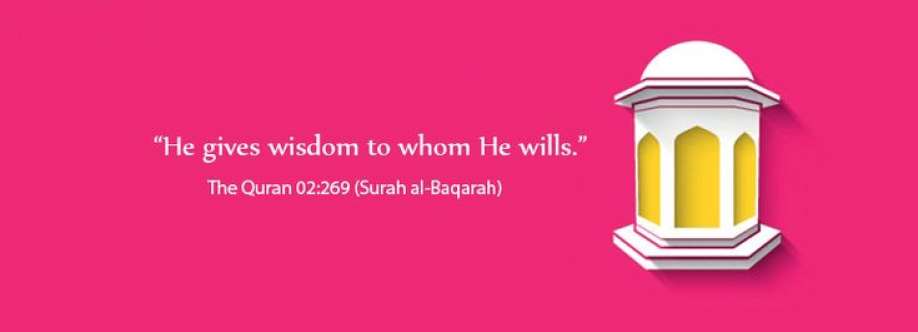"Title
Do not say ""Upon you be peace"" for ""Upon you be peace"" is the greeting of the dead
Hadith_Text
Abu Juray al Hujaymi (may Allah be pleased with him) reported: I went to the Messenger of Allah (may Allah's peace and blessings be upon him) and said: ""Upon you be peace, O Messenger of Allah."" He said: ""Do not say 'Upon you be peace' for 'Upon you be peace' is the greeting of the dead.""
Explanation
The meaning of the Hadīth: A man went to the Prophet (may Allah's peace and blessings be upon him) and greeted him saying: ""Upon you be peace, O Messenger of Allah."" So the Prophet forbade him from greeting in that way. And because the Prophet disliked his greeting, he even did not reply to it and told him that this is the way to greet the dead (not the living). Then the Prophet taught him the proper way to greet as mentioned in another Hadīth: ""Say peace be upon you"". The Prophet's statement that this was the greeting of the dead does not mean that this is what should be said when visiting the graves, because the way of greeting the dead has been reported from the Prophet while visiting the graves as: ""Peace be upon you, O dwellers of the abode of the believers."" Rather, he said that in reference to the way people used to greet the dead in the pre-Islamic era.
Benefits
Grade
Sahih/Authentic.
Takhrij
[At-Tirmidhi]
"

"Title
I believe you heard that Abu ‘Ubaydah has returned from Bahrain with something
Hadith_Text
‘Amr ibn ‘Awf al-AnsÄri (may Allah be pleased with him) reported that the Messenger of Allah (may Allah's peace and blessings be upon him) sent Abu ‘Ubaydah ibn al-JarrÄh to Bahrain to collect the Jizyah (yearly tax), and he returned from Bahrain with money. The AnsÄr heard the news of Abu ‘Ubaydah's return and they gathered for the Fajr prayer with the Messenger of Allah (may Allah's peace and blessings be upon him). After he had prayed and left, the AnsÄr presented themselves before him. When he saw them, he smiled and said: ""I believe you heard that Abu ‘Ubaydah has returned from Bahrain with something."" They replied: ""Yes, O Messenger of Allah."" The Prophet (may Allah's peace and blessings be upon him) said: ""Rejoice, and hope for that which will please you. By Allah, it is not poverty that I fear for you. What I fear for you is that the world expands (with lots of wealth) for you just as it did for the people before you. Then you will compete as they competed, then it will destroy you just as it destroyed them.""
Explanation
The Prophet (may Allah's peace and blessings be upon him) sent Abu ‘Ubaydah (may Allah be pleased with him) to Bahrain to collect the tax from them. When he returned to MadÄ«nah and the AnsÄr heard about his return, they went to the Prophet and gathered waiting for him at the Fajr prayer. After the Prophet prayed and started to leave, the AnsÄr presented themselves to him and he smiled because he knew they wanted some of the money. He said to them: ""Perhaps you've heard that Abu ‘Ubaydah has returned?"" They said: ""Yes, O Messenger of Allah,"" meaning we have come to receive our share of the money. So the Prophet gave them glad tidings that made them happy. He informed them that he does not fear poverty for them, because most of the time the impoverished person is closer to the truth than the wealthy one. Rather, he feared for them that the pleasures of the worldly life would be given to them, and then they would compete among themselves to attain them. A person in such a state (of competition) is never satisfied with what he has and he always wants more and more by any means. He does not care whether he acquires it through lawful or unlawful means. There is no doubt that this is a type of dispraised competition which attaches the person to this world and distances him from the Hereafter (and remembrance of it). So, as a result, the person is destroyed just as the previous nations were destroyed for the same reason.
Benefits
Grade
Sahih/Authentic.
Takhrij
[Al-Bukhari and Muslim]
"
"Title
Is anyone of you unable to earn one thousand good deeds each day? One of those present asked: How can one earn one thousand good deeds? He replied: By glorifying Allah one hundred times, one thousand good deeds will be added to his record, or one thousand sins will be removed from his record
Hadith_Text
Sa‘d ibn Abi WaqqÄs (may Allah be pleased with him) reported: We were with the Messenger of Allah (may Allah's peace and blessings be upon him) when he said: ""Is anyone of you unable to earn one thousand good deeds each day?"" One of those present asked: ""How can one earn one thousand good deeds?"" He replied: ""By glorifying Allah one hundred times, one thousand good deeds will be added to his record, or one thousand sins will be removed from his record.""
Explanation
The Prophet (may Allah's peace and blessings be upon him) asks his Companions: Are you not able to obtain one thousand rewards each day? So, a person sitting with him asked: How can one obtain one thousand rewards easily? He said: When one says ""Glory be to Allah"" one hundred times, one thousand good deeds will be written for him, because the reward of one good deed is multiplied ten times, and one thousand of his sins will be erased.
Benefits
Grade
Sahih/Authentic.
Takhrij
[Muslim]
"
"Title
We used to prepare for the Messenger of Allah (may Allah's peace and blessings be upon him) his tooth-stick and the water he used for making ablution. Then, Allah would awaken him whenever He willed during the night, and he would brush his teeth with the tooth-stick, make ablution, and perform prayer
Hadith_Text
‘Ā'ishah (may Allah be pleased with her) reported: We used to prepare for the Messenger of Allah (may Allah's peace and blessings be upon him) his tooth-stick and the water he used for making ablution. Then, Allah would awaken him whenever He willed during the night, and he would brush his teeth with the tooth-stick, make ablution, and perform prayer.
Explanation
‘Ā'ishah (may Allah be pleased with her) tells that she used to prepare for the Messenger of Allah (may Allah's peace and blessings be upon him) his tooth-stick and the water with which he would make ablution at night. Then Allah, Blessed and Exalted, would wake him from his sleep at any time of the night. When he woke up, he would begin with cleaning his teeth with the tooth-stick in order to remove the odor that affects the mouth because of sleep. Then he would make ablution for prayer, then offer voluntary night prayer.
Benefits
Grade
Sahih/Authentic.
Takhrij
[Muslim]
"
"Title
We used to set aside for the Prophet (may Allah's peace and blessings be upon him) his share of milk, and he would come at night and offer greetings in a tone that did not disturb those who were asleep but was heard by those who were awake
Hadith_Text
Al-MiqdÄd (may Allah be pleased with him) reported: We used to set aside for the Prophet (may Allah's peace and blessings be upon him) his share of milk, and he would come at night and offer greetings in a tone that did not disturb those who were asleep but was heard by those who were awake. So (one night), the Prophet (may Allah's peace and blessings be upon him) came and gave greetings as is he used to greet.
Explanation
Al-MiqdÄd and those who were with him used to milk their sheep and drink their portion of milk, then they would leave the portion of the Prophet (may Allah's peace and blessings be upon him) until he came to drink it. So, when he would come at night while they were sleeping, he would give greetings (SalÄm) in a moderate tone that would not wake the sleeping person up, whereas it would be heard by the ones who were awake.
Benefits
Grade
Sahih/Authentic.
Takhrij
[Muslim]
"
Hadith Collections










Sharmin Khan
Delete Comment
Are you sure that you want to delete this comment ?
Hamza Amadou
Delete Comment
Are you sure that you want to delete this comment ?
Delete Comment
Are you sure that you want to delete this comment ?